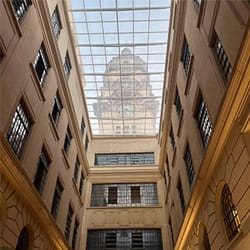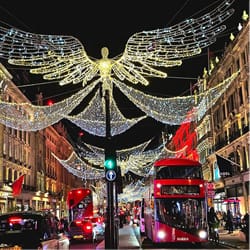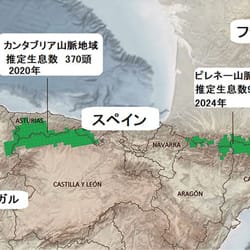The Citrus Festival, which took place over the last weekend in February, was a two-day celebration dedicated to citrus fruits, organized by the city’s Civic Market and local producers.
During the event there have been showcasing events, tastings, workshops and educational games for children and adults, as well as a “citrus night parade” with traveling shows, circus, fire eaters and street performers. The event is part of a cross-border project funded by the European Union involving the cooperation of Italy and France which also saw the participation of citrus fruits growers from all over Italy.

Citrus products on display
A non-competitive bike race for both adults and children, during which fruit juice was offered to all participants, served the purpose to raise funds for the development and maintenance of local agricultural practices and many other initiatives around the city aimed at promoting the territory through the story of the chinotto and the pernambucco oranges.
The chinotto is a citrus fruit endemic to Liguria, whose small, yellow, bitter pulp fruits are candied or used for soft drinks, jams and perfumes.
The pernambucco is a local variety of orange with very dense foliage. It is characterized by a fairly thick peel of an intense orange color and it’s very sweet.

Candied chinotto fruits in alcohol
Among the objectives of this event was to increase the competitiveness of micro, small and medium-sized enterprises connected to the agricultural, agri-food and green tourism sectors through the valorization of a quality product common to all the territories of the project.
For this occasion, the citrus fruits have been transformed into fantastic characters from the magical world of the circus with a particular story to teach us.
There was also the inauguration of the Living Lab, a permanent garden of citrus fruits, created for the students of the primary schools. A special garden and a new place for the city that was born thanks to the project and which will bring together, in a single space, the citrus fruits from all four areas involved.
The culminating event of the Citrus weekend was the creation of a sort of “citrus village” in the natural setting of the old town where over forty shops, bars and restaurants participated by offering themed windows, products, aperitifs and dedicated menus.

The pernambucco orange
Another goal of the event was to increase sustainable tourism, through the enhancement of local products uniting all the territories involved.
Activities to learn about the products obtained from the processing of citrus fruits such as cosmetics and pharmaceuticals were held throughout town and the festival also aimed at sharing and enhancing experiences and best practices among cross-border supply chains including workshops and lectures on sustainable citrus agriculture, differentiation and optimization of production and its derivatives and tourism potential related to these products and our landscape.
The Municipality of Genoa has been the leader of the entire operation and it has involved in the project all the institutions and local stakeholders, in addition to trade associations, research institutions and universities, growers, distributors, tour operators and local tourism agencies.
The ‘idea’ of the evet was born by a collaboration with neighboring France where, more specifically in the border town of Menton, the Citrus festival has reached its 86th edition this year.
In Menton, the festival is now attracting thousands of people every year from all over Europe who come to see the citrus parade and to visit the citrus gardens decorated with amazing displays and floats. Genoa would like to follow its steps and we hope to have a citrus parade with colorful floats next year because the citrus festival also falls during carnival.

Citrus-themed display in Menton, France






























































